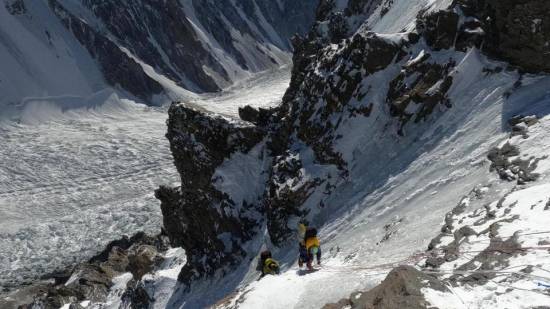An Australian and a Canadian mountain climber died last week in northern Pakistan while attempting to scale K2, the world’s second-highest mountain.
The death of Matthew Eakin was announced on Thursday by the Australian Department of Foreign Affairs and Trade, which expressed its “condolences to his family and friends.” His body was found through drone video.
A Pakistani mountaineering official and the Canadian Press said the body of Richard Cartier, who went missing in a separate incident on the same mountain on July 19, had finally also been spotted by a search team on K2.
Cartier was 60 and an experienced climber.
The Dawn, one of Pakistan's English-language newspapers, reported earlier this week that the two climbers had been spotted between Camp 1 and Camp 2 on K2 after they both went missing on July 19 in separate incidents.
Deadly record
Eakin’s devastated friends posted tributes on social media to honour him, saying his death was a huge loss to the mountaineering community.
Karrar Haidri, the deputy chief of the Pakistan Alpine Club, which coordinates search and rescue missions with Pakistan's government and military, confirmed the deaths of Eakin and Cartier.
“We extend our condolences to the friends and family members of the Australian and Canadian climbers who died on K2,” Haidri said.
Also last week, a third climber, Ali Akbar Sakki from Afghanistan, suffered a heart attack and died while trying to scale K2, Haidri said.
K2, on the Chinese-Pakistani border in the Karakorum Range, has one of the deadliest records, with most climbers dying on the descent, where the slightest mistake can trigger an avalanche and become fatal.
K2 is also among the coldest and windiest of climbs. At places along the route, climbers must navigate nearly sheer rock faces rising 80 degrees, while avoiding frequent and unpredictable avalanches.
Until this year, it had been scaled just 425 times, whereas Everest – the world's highest – had been conquered by more than 6,000 people since Edmund Hillary and Tenzing Norgay first reached the top in 1953.
Source: agencies


